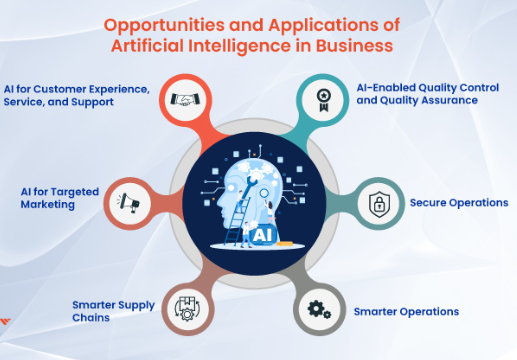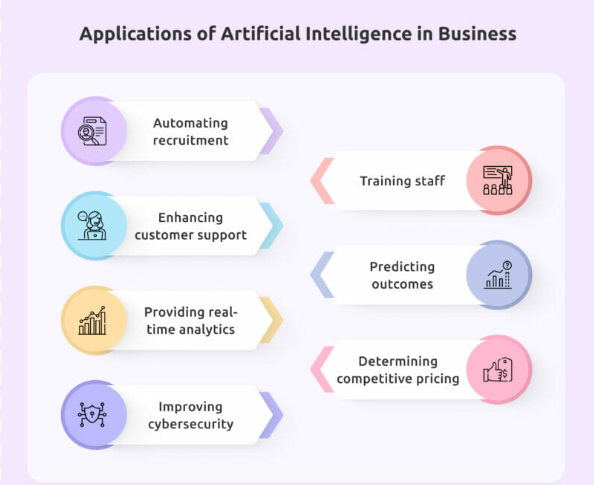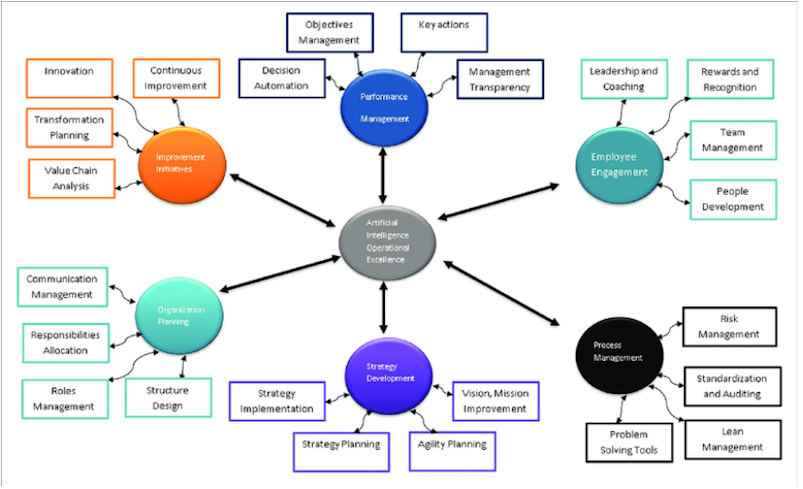AI-Driven Operations
(2025-10-02T14:13.336Z)
Perplexity Query
(2025-10-02T14:13
.336Z)
Question:
Write a comprehensive one-page article about "AI-driven operations".
Model: sonar-pro
AIOps: A Primer
Artificial Intelligence (AI)-driven operations refer to the integration of AI technologies into business processes to automate, optimize, and enhance decision-making, resource management, and service delivery. As organizations contend with increasing complexity, shifting customer expectations, and a need for resilience, AI-driven operations have become critical in powering innovation and competitive advantage across nearly every sector.

AI-driven operations harness machine learning, natural language processing, and robotic process automation (RPA) to transform how businesses function on a daily basis. In practice, this means replacing manual, repetitive tasks with intelligent automation that can interpret data, predict outcomes, and react in real time. For example, manufacturers employ AI for Predictive Maintenance—sensors detect unusual equipment vibrations, scheduling repairs before failures occur and reducing downtime by up to 50%.
[eh99ye]
Retailers use AI to forecast demand (Demand Forecasting), auto-allocate inventory, and personalize shopping experiences, resulting in higher sales and lower logistics costs.
[eh99ye]
[4idmby]
In customer service, AI-Powered Chatbots manage inquiries 24/7, providing instant responses and escalating complex cases to human agents only when necessary—helping logistics firms reduce complaints by 60%.
[eh99ye]
[k5qle2]
In finance, AI leads fraud detection, monitors transactions for anomalies, and automates compliance checks, bolstering security and reducing manual workloads. Supply chains benefit from AI-driven route optimization and real-time shipment tracking, which streamline delivery and cut transportation expenses.
[eh99ye]
Beyond traditional industries, AI in operations is reshaping healthcare with smart scheduling and patient admission forecasting, improving care efficiency while lowering administrative burden. In IT, AIOps (AI for IT operations) leverages algorithms to detect system anomalies and automate incident management, slashing problem resolution times from weeks to mere hours.
[4idmby]
Educational institutions use AI for enrollment projections and personalized learning, while agriculture deploys it for crop health monitoring and autonomous equipment operation.
[eh99ye]
These innovations deliver core benefits:
- Efficiency: Automation reduces repetitive tasks and errors.
- Cost savings: Streamlined workflows free up human talent for higher-value work.
- Agility: Organizations adapt faster to changing demands with real-time analytics.
However, adopting AI-driven operations is not without challenges. High-quality, well-structured data is essential—poor data leads to inaccurate predictions and unreliable results.
[eh99ye]
Ethical considerations, transparency, and change management remain concerns as automation affects roles and organizational culture.

The adoption of AI-driven operations is accelerating worldwide, with companies in manufacturing, logistics, finance, healthcare, and IT leading the way. Major technology providers—such as IBM, Microsoft, and emerging AI specialists—are delivering cutting-edge platforms that integrate machine learning, automation, and cloud services for operational transformation.
[4idmby]
[k5qle2]
Tools like Asana and Monday.com incorporate AI for workflow management, while retail leaders such as Walmart and Amazon automate supply chains with AI-based inventory and logistics solutions.
[k5qle2]
In 2025, AI-powered automation is further disrupting legacy systems, consolidating workflows and democratizing operational best practices.
[4muge8]
Key trends include the rise of AIOps for IT management, the proliferation of AI-based fraud detection in finance, and the expansion of AI to address regulatory compliance and sustainability in manufacturing and logistics.
[eh99ye]
[4idmby]
Organizations are investing not only in automation, but also in data governance and the reskilling of staff to work alongside AI.

Looking forward, AI-driven operations are expected to become more intelligent, adaptive, and autonomous. With advances in generative AI and real-time analytics, organizations will move toward self-optimizing operations—systems that anticipate market shifts, dynamically allocate resources, and optimize end-to-end processes with minimal human intervention. This shift has the potential to redefine productivity, enabling smarter, more resilient, and sustainable enterprises.
AI-driven operations are revolutionizing the way businesses operate, providing powerful tools for efficiency and adaptability. As technology and best practices evolve, organizations that invest in AI-driven operations will be best positioned to thrive in an increasingly complex and competitive world.
Citations
[eh99ye] 2025, Oct 01. AI in Operations Management: The Communication Breakthrough .... Published: 2025-07-23 | Updated: 2025-10-01
[4idmby] 2025, Oct 02. 10 ways artificial intelligence is transforming operations management. Published: 2024-07-11 | Updated: 2025-10-02
[k5qle2] 2025, Oct 01. AI-Driven Automation: The Future of Business Operations ... - Stellar. Published: 2024-09-10 | Updated: 2025-10-01
[4muge8] 2025, Oct 02. 7 AI Automation Examples Transforming Top Industries in 2025. Published: 2025-03-28 | Updated: 2025-10-02
[5]: 2025, Oct 02. A Guide to AI for IT Operations Professionals | Resolve Blog. Published: 2025-01-09 | Updated: 2025-10-02
[6]: 2025, Oct 01. Artificial Intelligence in IT Operations: A Primer - Eyer.ai. Published: 2024-04-15 | Updated: 2025-10-01
[7]: 2025, Oct 01. 10 Real-Life Examples of how AI is used in Business. Published: 2025-09-10 | Updated: 2025-10-01
[8]: 2025, Oct 02. Examples of Artificial Intelligence (AI) in 7 Industries | Thoughtful. Published: 2025-08-26 | Updated: 2025-10-02
[9]: 2025, Oct 02. What is AIOps? - Artificial intelligence for IT Operations Explained. Published: 2025-09-29 | Updated: 2025-10-02